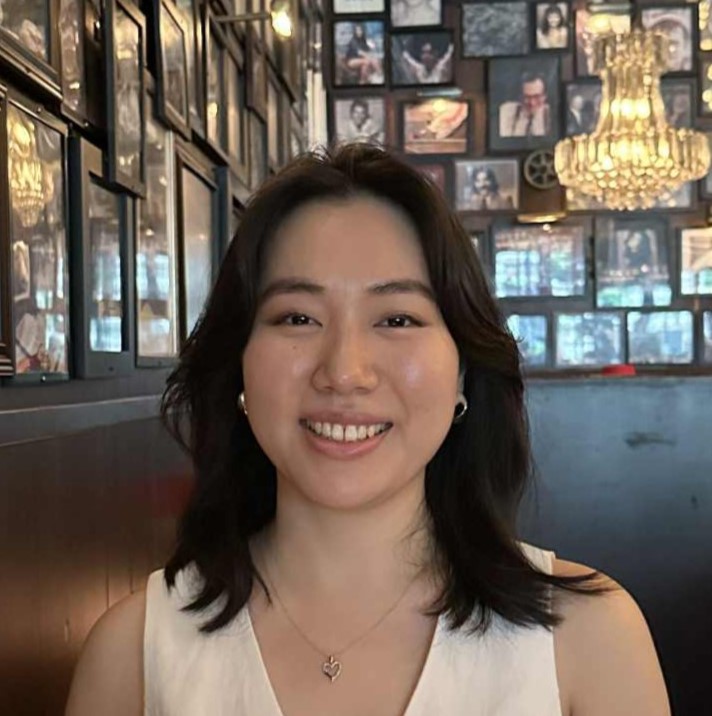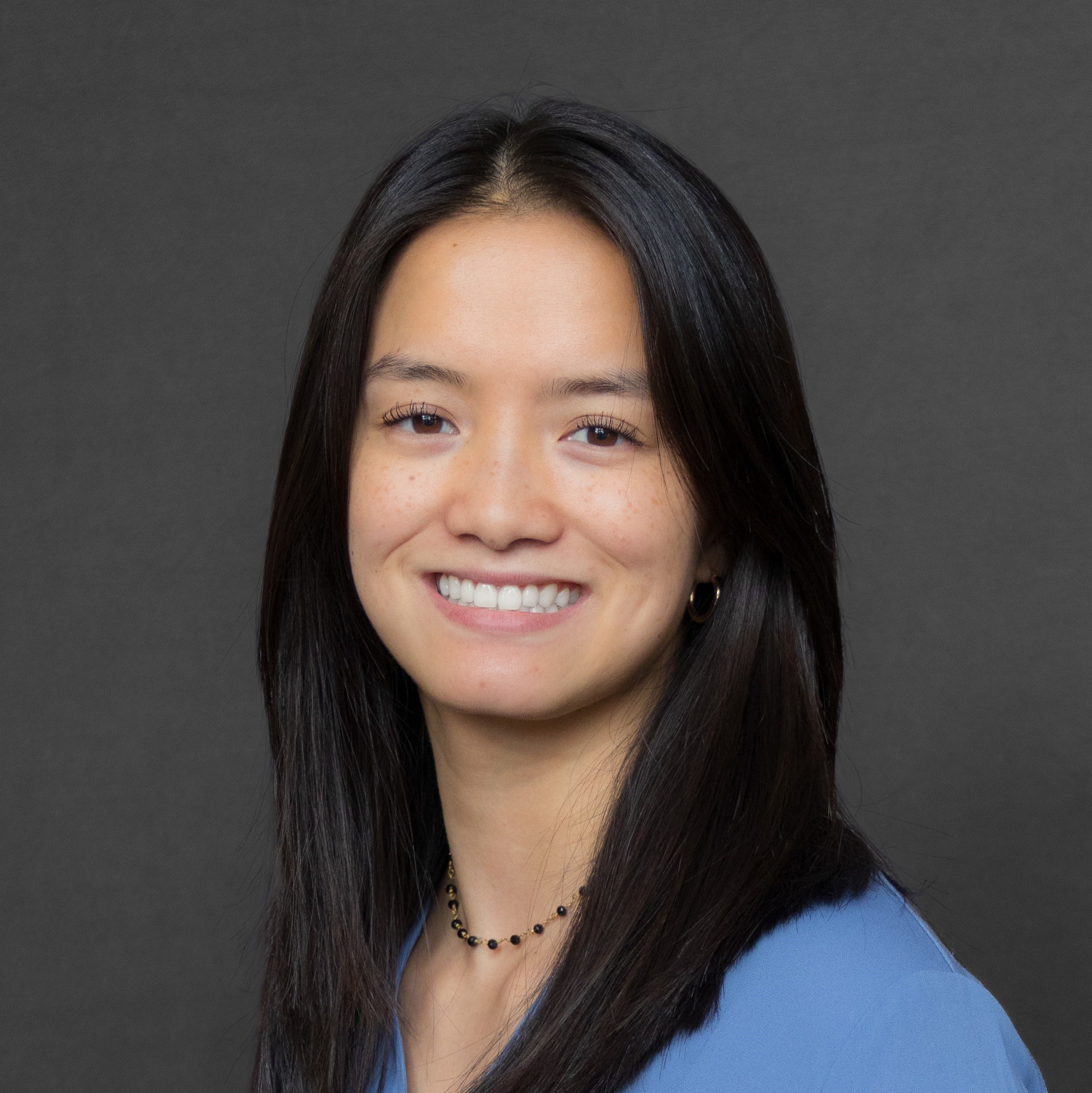Current Cluster Students

Norah Chen
Grad Program: CEE
PhD Adviser: Ludmilla Aristilde
Doctoral Research Project: Plastic waste, particularly polyethylene (PE), is a significant environmental pollutant due to its chemical inertness and resistance to microbial degradation. Chemical oxidation has enabled partial depolymerization of PE into α,ω-dicarboxylates, yet the bioconversion of these intermediates into value-added products remains a major challenge. Conventional microbial hosts lack the native capacity to both catabolize these unusual substrates and synthesize desirable bioproducts, creating a critical gap in efforts to upcycle plastic waste through microbial platforms. My research addresses this gap by establishing Comamonas testosteroni as a promising non-model host for plastic-derived carbon valorization. C. testosteroni is a wastewater-adapted bacterium with native metabolic capacity to utilize diverse dicarboxylates as sole carbon sources and to produce polyhydroxyalkanoates (PHAs), a family of biodegradable bioplastics. Despite this potential, the underlying metabolic pathways in Comamonas remain poorly characterized, limiting its application in synthetic biology and metabolic engineering. To overcome this limitation, I am integrating isotope tracers, LC-MS–based metabolomics, and carbon flux modeling to map the pathways by which C. testosteroni catabolizes PE-derived dicarboxylates and channels carbon into PHA biosynthesis. This work will expand our understanding of Comamonas metabolism, enable future strain engineering for enhanced plastic upcycling, and contribute broadly to sustainable biomanufacturing from synthetic waste streams.

Yilin Feng
Grad Program: IBiS
PhD Adviser: Erica Hartmann
Doctoral Research Project: Bacteriophages or phages, the viruses that infect bacteria, are crucial in shaping microbial communities in every ecosystem. They can eliminate host bacteria by replicating and lysing the host (lytic cycle), or modify host genome by integrating viral DNA into the host chromosome without causing cell death (lysogenic cycle). These diverse host–phage interactions make phages a potential tool to manipulate both the abundance and genetic characteristics of targeted bacterial populations. During my PhD, I aim to (1) systemically screen for defense genes in phage-resistant isolates of the common bacterial pathogen Pseudomonas aeruginosa, which will provide valuable insights for the design and application of effective phage therapies; and (2) develop a methodology to engineer Gordonia phages targeting soil bacteria, and evaluate the potential of synthetic phages as vehicles for gene delivery into environmental bacteria, with the ultimate goal of utilizing phages to introduce enzymes capable of transforming or degrading specific environmental contaminants.

Yujin Lee
Grad Program: DGP
PhD Adviser: Judd Hultquist
Doctoral Research Project: Human Immunodeficiency Virus (HIV) remains incurable, with only seven reported cases of sustained viral suppression after stopping antiretroviral therapy following heterologous transplantation of hematopoietic stem cells carrying the CCR5Δ32 allele. While this mutation blocks HIV entry and offers a promising path toward a cure, it is found in only 1% of the human population. Moreover, over 2,600 additional CCR5 variants have been reported, yet the vast majority remain functionally uncharacterized for their impact on HIV susceptibility. To address this gap, my project employs a CRISPR base editing platform to generate and test CCR5 variants that modulate HIV-1 replication and develops non-viral delivery methods, such as lipid nanoparticles, for introducing these edits into primary human CD4+ T cells. By challenging base-edited cell pools with replication-competent, CCR5-tropic HIV-1, I aim to identify variants that confer resistance to infection. This work will not only provide critical insights for developing new HIV cure strategies but also establish a new functional genomics platform for interrogating the role of genetic variation in human disease at single-nucleotide resolution.

Kenna Roberts
Grad Program: ChBE
PhD Adviser: Linda Broadbelt
Doctoral Research Project: Polyketide synthases (PKSs) are multifunctional enzymes composed of covalently linked domains that facilitate enzymatic transformations in an assembly line fashion to synthesize elongated carbon scaffolds. As one of the few systems capable of recursively forming carbon-carbon bonds, PKSs are particularly useful for constructing molecular backbones that can later be modified using monofunctional enzymes or synthetic chemistry. The modularity and deterministic nature of PKSs make them a promising candidate for engineering the synthesis of structurally and functionally diverse molecules. Integrating enzymatic machinery with synthetic modifications and pathway engineering holds significant potential for overcoming key bottlenecks in biomanufacturing. My project focuses on developing and advancing computational methods for engineering novel molecular syntheses, using PKSs as the primary platform. Through this work, I aim to improve the utility of these systems in enhancing downstream bioproduct production and supporting the pursuit of a bio-based economy.

Ana Clara Zampirolli Leal
Grad Program: Chemistry
PhD Adviser: Chad Mirkin
Doctoral Research Project: Cancer is the second leading cause of death worldwide after cardiovascular diseases, and the number of patients continues to rise. Therefore, it is imperative that new methods and technologies emerge to treat cancer effectively. Immunotherapy is considered an effective modality for treating primary and metastatic tumors by activating the patient’s immune system to fight cancer and establish immunological memory. My research builds on the Mirkin group’s work with spherical nucleic acids (SNAs), which are known for their high cellular uptake and resistance to degradation. To overcome limitations in molecular control, I am expanding a DNA dendron-based platform inspired by SNAs. This approach enables the co-delivery of multiple immunostimulatory DNA sequences and tumor-specific antigens, allowing for precise modulation of immune responses. Ultimately, this work seeks to establish a tunable and effective strategy for eliciting robust anti-tumor immunity.
